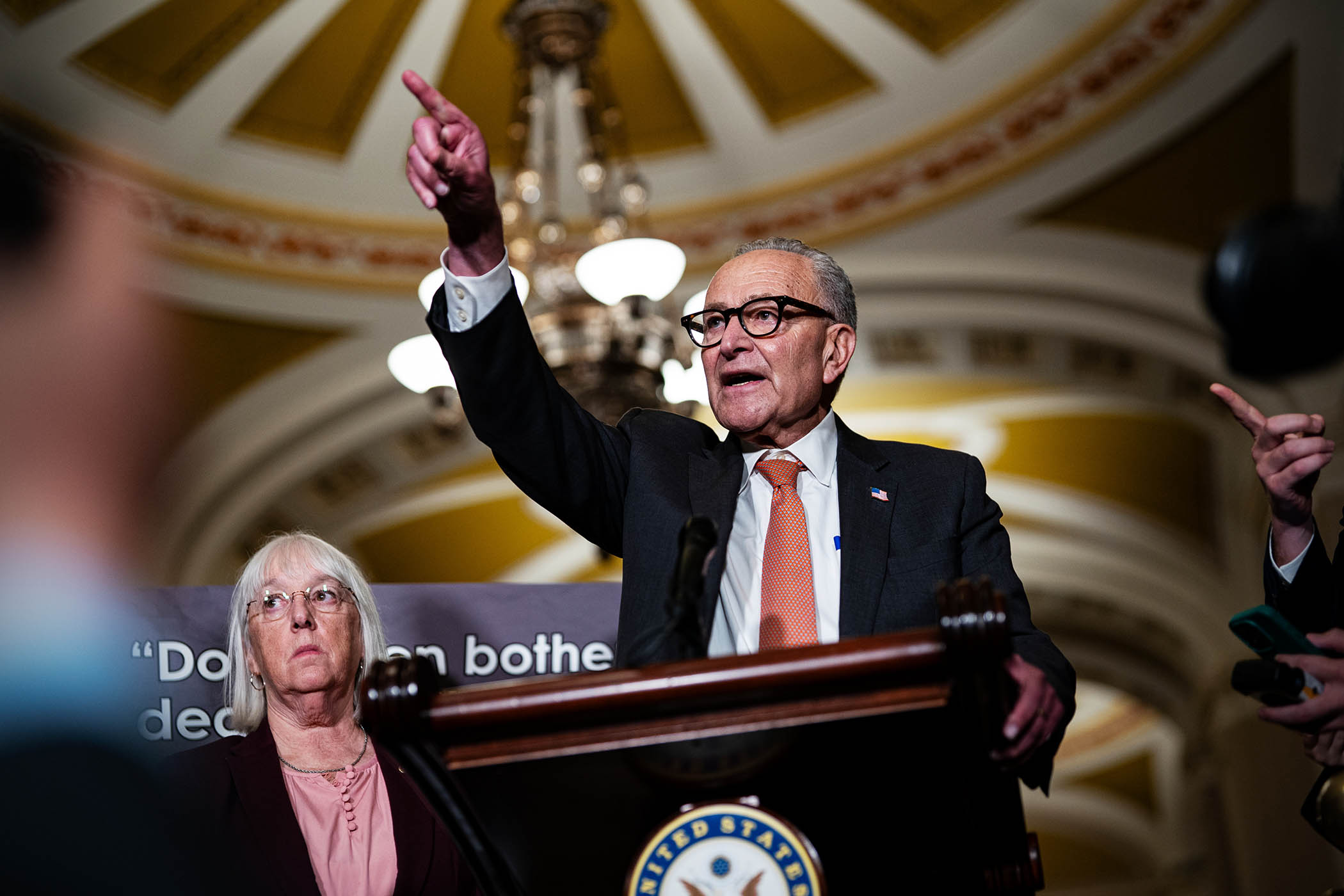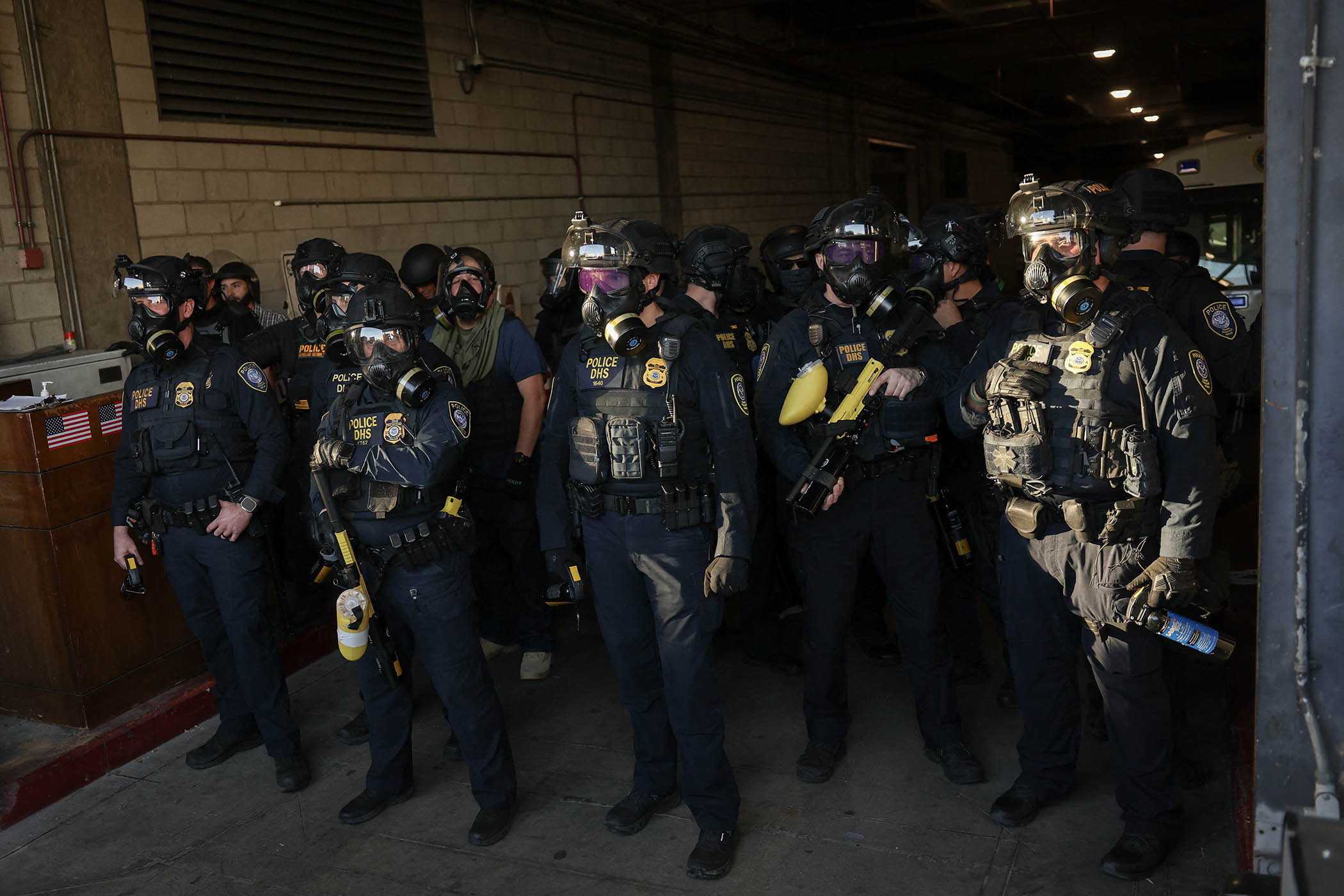The US federal government will run out of money to pay the bills at midnight unless Democrats and Republicans agree on a last-minute spending bill.
So what? Steamrolled for months by the Trump administration, tonight’s deadline is the first opportunity for the Democrats to take the fight to the White House. But shutting down the government will have consequences for millions of Americans. It would see
•
thousands of federal workers furloughed without pay; and
•
the suspension of all but essential government services.
Flat track bully. Democrats have struggled to lay a glove on Donald Trump since he returned to office. He has used his second term to dismantle the civil service, launch a sweeping immigration crackdown, send troops to US cities and prosecute his political opponents.
Dangerous path. With Congress marginalised and the Supreme Court on his side, Democrats claim the president is marching the US down a path to naked authoritarianism.
Deadlocked. Republicans control both chambers of Congress, but with only slender majorities. A short-term spending bill has already passed the House, but Republicans need Democratic votes in the Senate to keep the government open when its new fiscal year starts on 1 October.
What it means. During shutdowns many federal employees are told not to come to work. This affects everything from passport and loan applications to food safety inspections and bathrooms in national parks. Medical and welfare payments continue to be made since they do not require annual approval from Congress.
Sensing an opportunity. Rudderless since last year’s election defeat, Democrats have little political leverage. But the spending battle is the best chance they have to stand up to the Trump administration. They may not get another before the midterm elections next year.
Demands. In return for their votes, Democrats want to restore funding for health subsidies cut by Trump’s sprawling “Big Beautiful Bill”. This is the centrepiece of his domestic agenda. Critics say it strips away support for the poorest Americans while giving tax breaks to the richest.
Missed chance. Democrats got their first opportunity to challenge Trump in March, when the last funding bill expired. Instead Democratic Senate leader Chuck Schumer approved a deal, lending votes without securing any concessions. This enraged the party’s base and sparked calls for Schumer to be ousted as leader.
Digging in. This time supporters have urged the party to hold the line. “Our position has been very clear: cancel the cuts, lower the costs, save healthcare,” Democratic House leader Hakeem Jeffries told ABC.
Newsletters
Choose the newsletters you want to receive
View more
For information about how The Observer protects your data, read our Privacy Policy
Popularity contest. Parties that force shutdowns usually suffer a backlash at the next election. The Republicans are therefore keen to pin the blame on the Democrats. Trump has called their demands “ridiculous” and said, without evidence, that they want to use taxpayer money “to fund Transgender surgery for minors”.
Backstory. The last shutdown occurred during Trump’s first term in 2018, when Democrats refused to fund his border wall. It dragged on for a record 35 days, and nearly a million federal employees were furloughed or had to work without pay. It cost the US economy $11 billion.
Trump 2.0. This Trump administration is a very different beast. The president has upped the ante by threatening to fire thousands of federal employees if a shutdown happens.
Brinkmanship. Many Democrats believe he is bluffing, especially since some previous layoffs announced by the administration were reversed or blocked by the courts.
What’s more… Democrats are also encouraged by Trump’s recent poll numbers. Recent surveys show that Americans broadly disapprove of his handling of the economy and immigration, the issues that voters elected him on.



